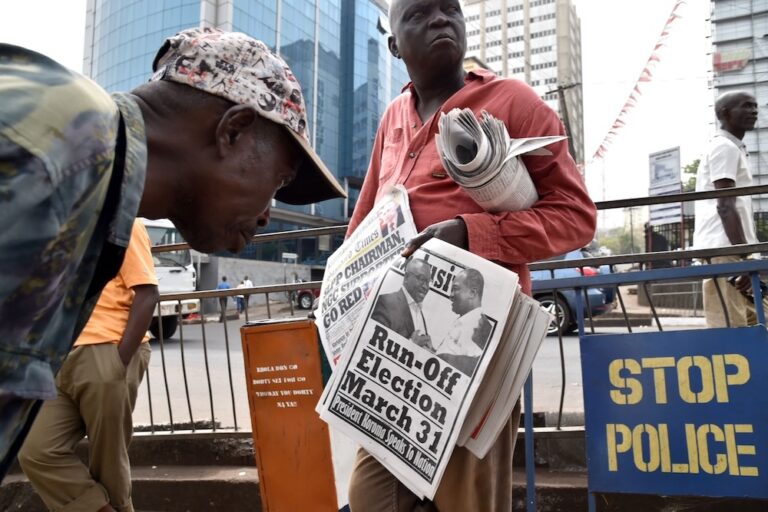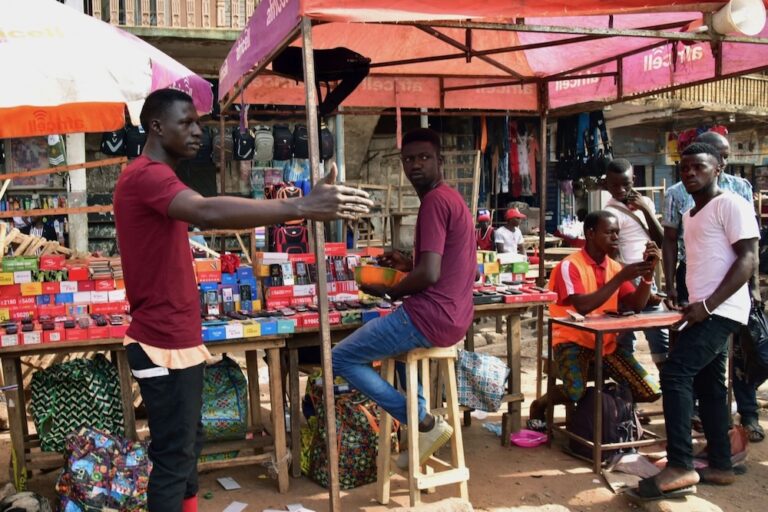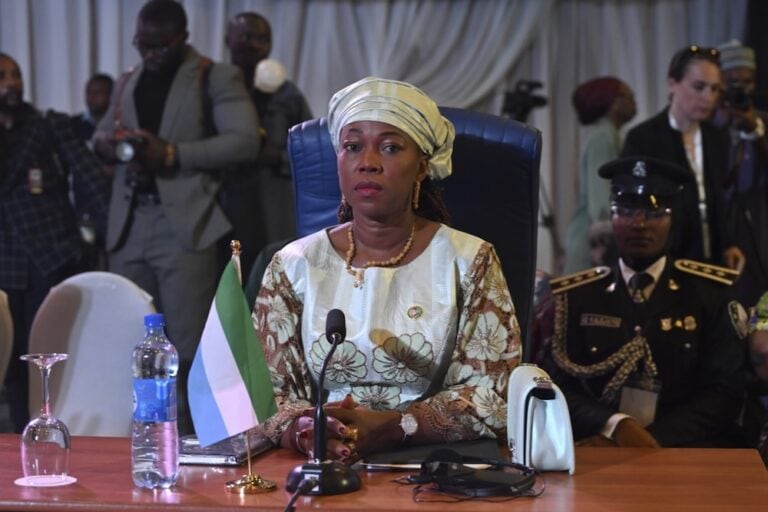(CPJ/IFEX) – The following is the text of a letter sent by CPJ to the president and the members of the Sierra Leone Association of Journalists (SLAJ) in regard to the possible formation of a media council in the country: December 5, 1998 Frank Kposowa, President & Members Sierra Leone Association of Journalists (SLAJ) Dear […]
(CPJ/IFEX) – The following is the text of a letter sent by CPJ to the
president and the members of the Sierra Leone Association of Journalists
(SLAJ) in regard to the possible formation of a media council in the
country:
December 5, 1998
Frank Kposowa, President & Members
Sierra Leone Association of Journalists (SLAJ)
Dear Mr. Kposowa and SLAJ Members:
We have learned that executives of the Sierra Leone Association of
Journalists (SLAJ) are meeting with a government subcommittee, comprised of
Information Minister Julius Spencer, Energy and Power Minister Thimu
Bangura, Trade and Industry Minister Alie Bangura, and Deputy Minister of
Foreign Affiars Mr. Kabbie, to discuss the possible formation of a press
council in Sierra Leone. CPJ believes such a press council would have
long-lasting, far-reaching, and unintended negative effects on journalists.
We hope you will consider the impact the proposed council would have on
press freedom during your meetings with government officials.
Improving the quality and professionalism of journalism is an important and
necessary goal in Sierra Leone. However, forming a press council, composed
mostly of non-media professionals, and including government officials, and
granting it the power to fine and effectively censor journalists, would be,
in our opinion, a serious case of good intentions gone awry. We hope SLAJ
will consider alternative possibilities that may prove to be much more
effective in improving journalistic responsibility such as more extensive
journalistic training and education and increased self-scrutiny on the part
of the media without potentially sacrificing journalists’ ability to report
the news. As you are aware, many critical stories rely on confidential
sources, and journalists who may not be able to “prove” the truth of their
stories to the press council’s satisfaction will be censored if they cannot
pay its fines. CPJ believes SLAJ and Sierra Leone’s journalists certainly
have the capability to maintain the responsibility of the profession without
the assistance of a coercive press council.
Currently, the Nigerian Press Organization (NPO) is vigorously opposing the
formation of the National Mass Media Commission. (We have attached the
official position of the NPO on the commission for your review.) Many
journalists around the word have become wary of legislation calling for
press councils, whether it be in Hong Kong, Bulgaria, or Zambia. Slovakian
journalists have already felt the effects of a punitive media council.
CPJ wishes our colleagues at SLAJ every success in their efforts to improve
journalistic professionalism, and we believe that this can be achieved
without the creation of a punitive press council. We hope you will consider
our opinion, which is based on our experience of monitoring press freedom
conditions around the world. We believe SLAJ’s recommendations to the
government will have a great effect on the future of press freedom in Sierra
Leone and in the region.
Sincerely,
Kakuna Kerina
Program Coordinator for Africa


